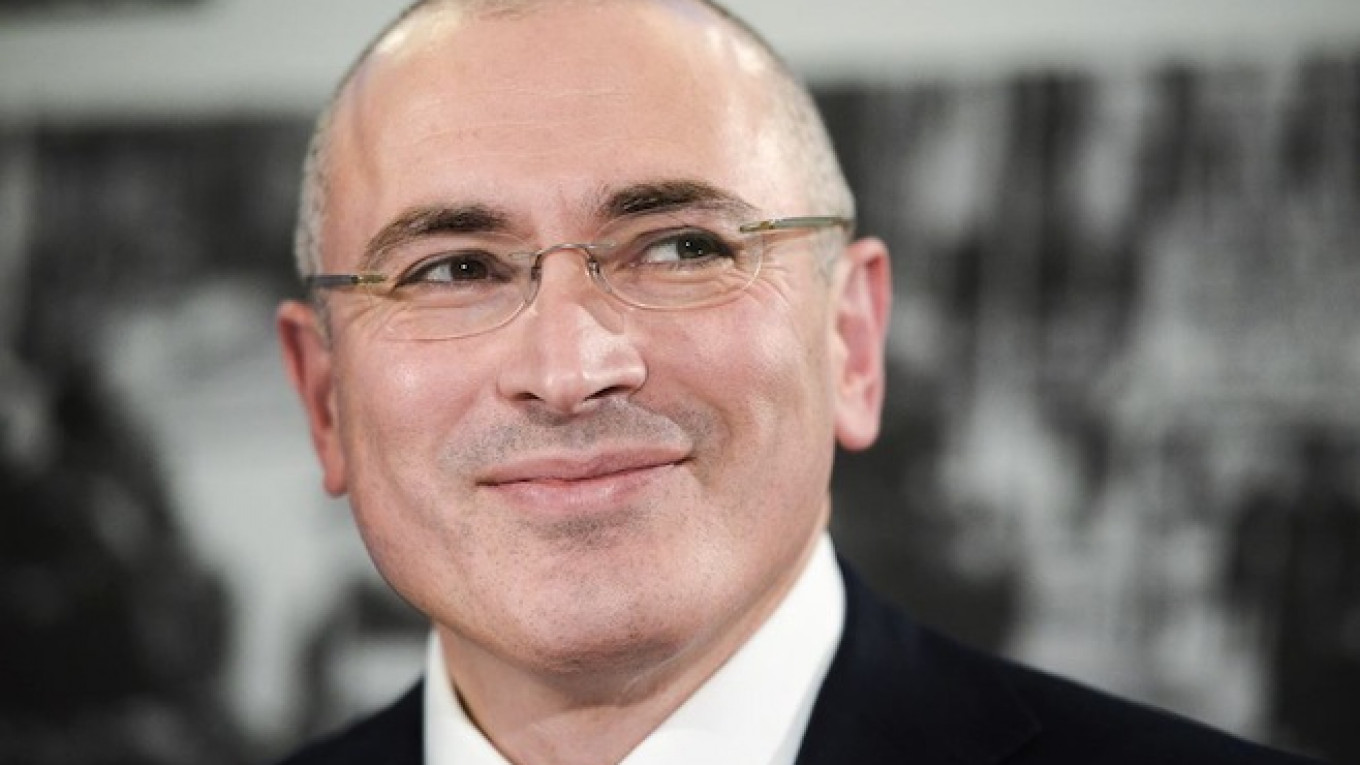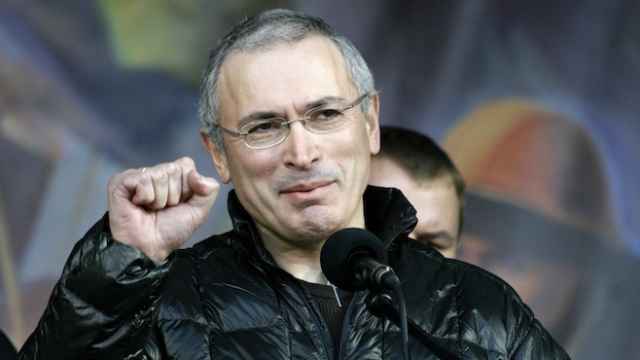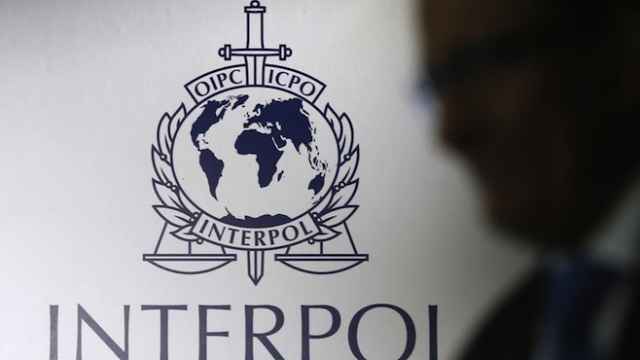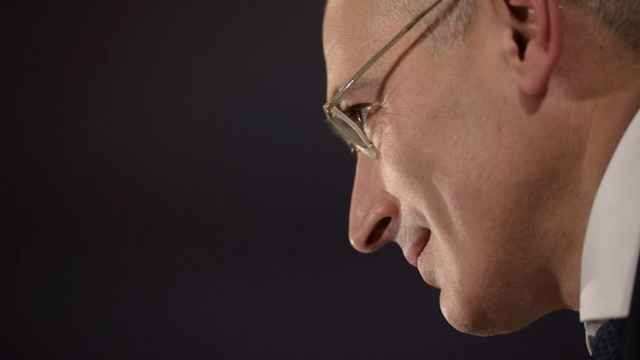Former oil tycoon turned opposition politician Mikhail Khodorkovsky's pro-democracy foundation has received dozens of requests from members of Russia's main political parties to endorse them during an upcoming parliamentary election this fall, the coordinator of Khodorkovsky's Open Elections project said in comments published Wednesday.
The requests that came in during the past three weeks included 11 from members of the ruling United Russia party, nine more from members of the Communist Party, and six from A Just Russia party, Open Elections coordinator Timur Valeyev said, the Vedomosti business daily reported.
The three parties are currently represented in the State Duma, which has so far pursued staunchly pro-Kremlin policies and no longer includes any opposition political factions.
The requests for Khodorkovky's support could signal a shift in Russian politicians' willingness to ally with President Vladimir Putin — whose administration is besieged by a growing public discontent over an economic downturn and eroding living standards, amid Western sanctions imposed against Moscow over its meddling in Ukraine.
“The people upstairs understand that the game is just about over,” Dmitry Oreshkin, a political analyst, said in an interview with the independent Ekho Moskvy radio Wednesday. “It doesn't matter whether this happens during this electoral cycle or the next one — [the game] is over.”
Along with requests for Khodorkovsky's support from the main political parties, Open Elections received dozens more from opposition parties that no longer hold legislative seats, the Open Elections coordinator said, Vedomosti reported.
Those include 25 requests from members of Parnas — the political party that had been led by opposition politician Boris Nemstov until his murder near the Kremlin a year ago — 22 more from members of opposition Yabloko party, and 142 from independent candidates, the Open Elections coordinator said, Vedomosti reported.
The bulk of requests come from local political activists in Russian regions, who lack funds for running political campaigns and are skeptical of their chances of being promoted within their parties, Valeyev was quoted as saying.
But another reason is political, he said, echoing the view that the trend signifies a growing disillusionment with the Kremlin's policies.
“Since the crisis has started, many people have changed their views on what is happening,” Valeyev was quoted by Vedomosti as saying.
Putin's domestic approval ratings remain high, but that may be partly due to Russians' fear of disclosing their dissent to pollsters, according to surveys by the independent Levada Center.
Putin's approval rating stood at 82 percent in late January — a dip from a record high of 89 percent in June 2015 and 85 percent in December 2015, according to Levada Center polls. But a more significant figure may be the number of Russians who mentioned Putin's name among the politicians they trust — 58 percent in January, compared to 64 percent in June 2015 and 60 percent in December 2015, according to the Levada Center.
Leaders of the ruling parties whose members have been seeking Open Russia's endorsement, according to Valeyev, bristled at the suggestion that the rank and file may be looking to flee their groups, Vedomosti reported.
“I don't believe there are such individuals in our ranks; this is incompatible with membership in KPRF [Communist Party],” its head of the legal services department Vadim Solovyov was quoted as saying.
Senator Vyacheslav Timchenko from the ruling United Russia also claimed his fellow party members would not ally with Khodorkovsky's group, the report said.
“Everybody knows that Khodorkovksy and his patrons are traitors to Russia, and asking traitors for support is the worst possible thing,” he was quoted by Vedomosti as saying.
Opposition Yabloko leader Emilia Slabunova declined to comment in detail, saying she was unaware of any fellow party members seeking Khodorkovsky's support, and added that Open Election's claim may amount to “disinformation,” Vedomosti reported.
Open Russia's Valeyev declined to name any of the politicians who asked his group for support.
“This would put them at risk of being expelled from their parties, and we haven't officially endorsed those people yet, because we will choose only about 20 people from among the applications we received,” he was quoted as saying.
Contact the author at newsreporter@imedia.ru
A Message from The Moscow Times:
Dear readers,
We are facing unprecedented challenges. Russia's Prosecutor General's Office has designated The Moscow Times as an "undesirable" organization, criminalizing our work and putting our staff at risk of prosecution. This follows our earlier unjust labeling as a "foreign agent."
These actions are direct attempts to silence independent journalism in Russia. The authorities claim our work "discredits the decisions of the Russian leadership." We see things differently: we strive to provide accurate, unbiased reporting on Russia.
We, the journalists of The Moscow Times, refuse to be silenced. But to continue our work, we need your help.
Your support, no matter how small, makes a world of difference. If you can, please support us monthly starting from just $2. It's quick to set up, and every contribution makes a significant impact.
By supporting The Moscow Times, you're defending open, independent journalism in the face of repression. Thank you for standing with us.
Remind me later.






